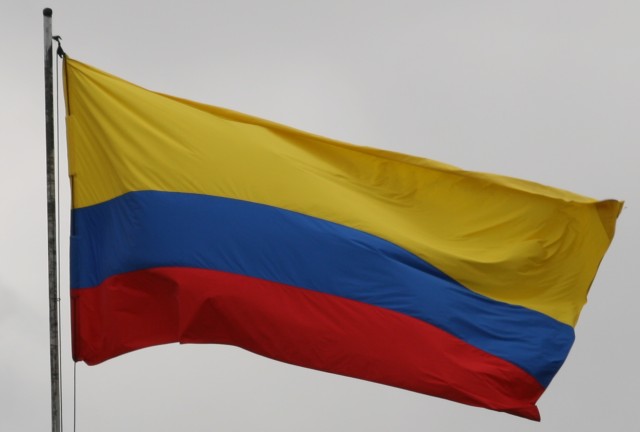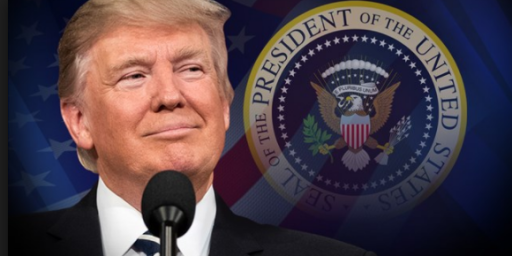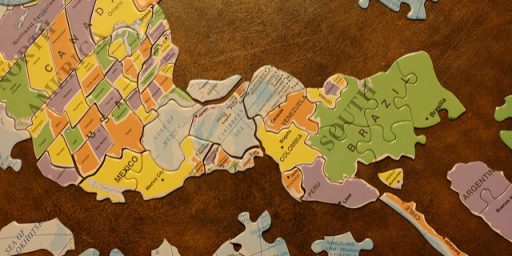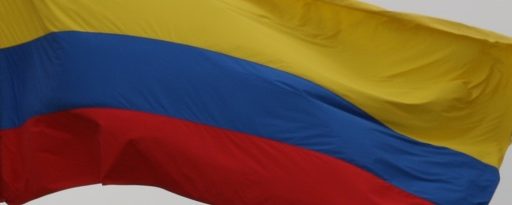Colombia’s President Calls for End of War on Drugs
He is seeking a new regional consensus.

Via Reuters: Colombian President proposes Latin American alliance to transform ‘war on drugs’
Petro, the first leftist president in Colombia’s history, closed the Latin American and Caribbean Conference on Drugs, which was held in the city of Cali, by saying that 50 years of a failed war on drugs had resulted in immeasurable bloodshed and pain in Latin America.
[…]
“It is time to rebuild hope and not repeat the bloody and ferocious wars, the ill-named ‘war on drugs’, viewing drugs as a military problem and not as a health problem for society,” Petro said.
There is little doubt that any objective standard, the “war on drugs” has been a failure. It has not stopped drug production, transport, or usage. It, in fact, helps to increase the price of illicit substances and therefore incentivizes production, trafficking, and corruption.
While US drug policy is not a core area of research for me, I have been actively studying Colombia for over thirty years and so the topic has been impossible to ignore. One of the things that I can say with a great deal of certainty is that the billions upon billions we have spent on the war on drugs has not paid off. It has been a very poor investment (and continued calls for militarization of the border to stop drug smuggling will likewise fail if implemented).
I have thought, for many years now (decades, in fact) that we should be treating the drug problem like a public health issue, not as a “war.”
This is not to say that there aren’t real social costs to drug abuse, but we would be better off as a society trying to treat the abuse and its collateral damage than acting like we can punish our way to success in this arena.
At a bare minimum, a cost/benefit analysis tells us so.
We have to acknowledge that it is impossible to eradicate the usage of intoxicants, and so the only rational policy solution is some kind of societal harm reduction strategy. Moreover, the punitive approach has empirically failed and has done so with a massive cost in both lives and money.






Militarization of the border is underselling some of the rhetoric from GOP primary campaigns. Plus legislation has been introduced to designate cartels as terrorist organizations.
Too bad these GOP politicians aren’t like normal guys with ED and an inferiority complex. Everyone would be better off if they just bought a Porsche and a big bottle of Viagra instead of sitting in offices ordering murder.
Agreed.
Speaking of Colombia, I read this yesterday: Fentanyl, cartels or simple market glut: what’s behind collapse of Colombia’s coca market?
Just an FYI link I found interesting to speculate on the reasons for it.
It’s ironic that we figured this out pretty quickly with regards to Prohibition, but stubbornly refuse to learn the lesson with other intoxicants.
@DrDaveT:
1) It’s not so much about the harmfulness of the drug, but much more about who is abusing it.
When drug enforcement got going, anything non-alcoholic was associated with minorities. Back in the day, heroine/opium was something you got in Chinatown. marijuana was a “negro” thing.
It’s really so much easier to have a moral panic about “those people” drugging themselves senseless and raping the local maidens than if it’s “us” having some harmless fun.
Fun fact: prohibition was at least partly rooted in nativist/anti-Catholic sentiment:
2) Prohibition gave a big boost to organized crime and corruption. People obviously didn’t like how much this messed up society: mobsters with tommy guns, etc.
But with the War on Drugs, most of the societal corruption takes place somewhere else. Much easier to tolerate the cartels in Colombia or Mexico than over here.
@drj:
Just look at the sentencing disparity between powder cocaine and crack. At one point getting caught with crack carried a mandatory minimum sentence 100 times that of an equivalent amount of powder. And it’s not hard to figure out why.
@drj:
There is a clear history of this. I would actually note that marijuana was initially a “Mexican” thing and cocaine a “negro” thing. Some of these targets have moved over the years.
I will note that even now when there is some new street drug, pay attention to how frequently stories of a drug-crazed person of color is the bogeyman of the tale from law enforcement.
Agreed, and yet the drug war continues to be one of the few areas with a high degree of bipartisanship.
I would also note that I think – as with most things – this isn’t an either/or choice. There still need to be efforts to interdict illegal drug flows, production, and distribution, but the balance of resources and focus should be decisively shifted toward demand reduction and treatment.
There was a story I read which had been published in the 1970’s?, 1980’s? where the US president had legalized drugs and solved the War on Drugs. Drug crime and use had gone down. He was later assassinated by the CIA? FBI? BATF? because there was too much money and career aspirations involved. The War was restarted because the “drug cartels” were blamed for the death.
After reading that story, I realized that nothing would ever be done to get rid of the War on Drugs.